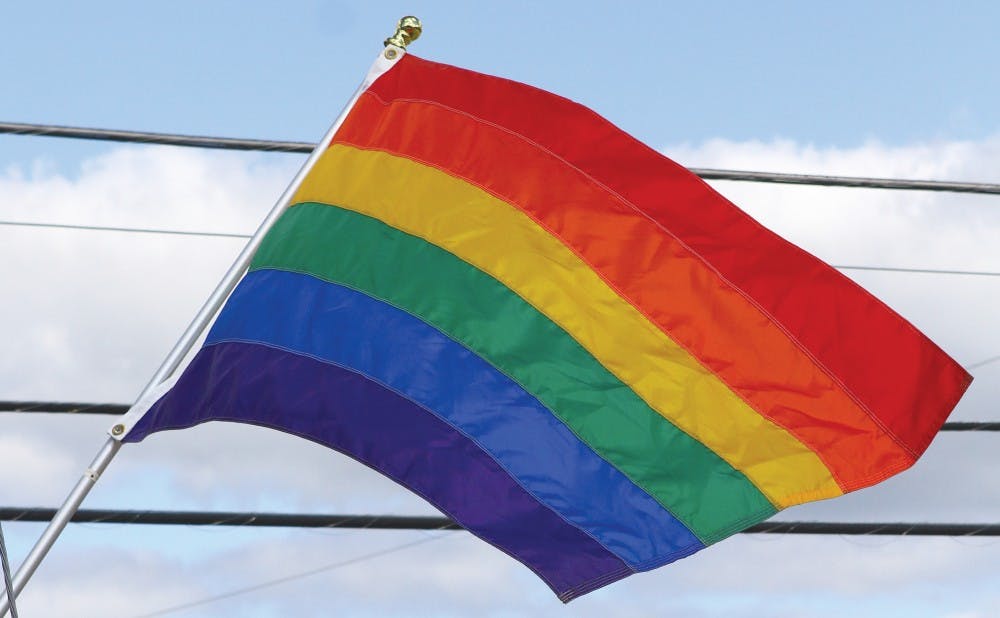Back in January, I opened an Instagram story posted by the sorority I used to be a member of and my stomach dropped. It was a boomerang of several chapter members with a caption about being excited for the last round of recruitment—and, I watched as, dead center, two women kissed on the lips and then laughed in a nauseating loop.
The dictionary defines cultural appropriation as “the unacknowledged or inappropriate adoption of the customs, practices, ideas, etc. of one people or society by members of another and typically more dominant people or society.” It’s being able to enjoy the benefits of certain identities and cultures without having to face the discrimination that comes from actually holding those identities. In the case of queer appropriation, it can erase the voices and identities of actual queer people, exploit queer culture while perpetuating anti-queer prejudice, and even directly denigrate members of the queer community.
One example I see with aggravating frequency is a photo posted to social media of platonic friends accompanied by a caption about how she is “in love” with her “girlfriend” or “wife.” I understand that it is likely meant in good fun, but when I know women who would be kicked out of their homes for posting a photo kissing their actual girlfriend, it doesn’t seem very funny to me. By all means, express the love you have for your friends on social media. However, if you joke about being in a queer relationship when you are not, I am never going to feel comfortable talking to you about women I’m actually dating.
We seldom get the opportunity to unpack the LGBTQIA+-excluding culture perpetuated in the Greek environment. I’ve seen heterosexual-identifying women in sororities kiss one another as a “joke” while simultaneously expressing their discomfort with queer sisters in actual sexual and romantic relationships. I’ve heard of the fear that wearing braids and flannels during a round of recruitment would make the chapter look like “the lesbian sorority.” Then there’s the “My Tie” party, where your blind date finds you by the tie that you’re wearing—his tie. While Greek life maintains that the purpose of fraternity-sorority “mixers” goes beyond meeting romantic and sexual partners, sororities—whose members indubitably have friends across chapters—do not host parties with one another.
Of course, these are just a few examples, and thus do not include other negative experiences in sororities, as well as in fraternities, SLGs, and additional affiliations. I also want to recognize that many queer students have been fortunate to find affinity groups and supportive allies within their organizations.
If this doesn’t seem like a big issue to you, or if you haven’t considered how you may have inadvertently made your peers feel uncomfortable, unwelcome, and even unsafe, I invite you to reflect on allyship and the impact of your actions. You don’t need to fully understand something in order to empathize with others and make minor adjustments that take major steps toward inclusivity. Microaggressions have long-lasting consequences for marginalized individuals, and no one should have to feel like they need to conceal their authentic identity within a group that is supposed to be supportive and empowering.
Last year when I was working on Greek Ally Week programming, a gender non-conforming student asked me if they are welcome in fraternities or sororities. I responded that the system inherently perpetuates the gender binary and cisheteronormativity, thus making it unwelcome to trans and GNC students simply by its structure. We also know that Greek life is exclusive for a whole range of other reasons, including high cost and lack of racial and ethnic diversity.
Social change is achieved at multiple levels. I believe in fighting for the big picture—eradicating these oppressive systems—while concurrently treating symptoms by supporting current LGBTQIA+ students in Greek life, as it remains omnipresent on campus. Our programming provides space for LGBTQIA+ students in fraternities and sororities of all councils to confidentially connect and discuss their experiences, as well as the opportunity for other folks to learn about how these issues manifest. Our Ally 201 training goes beyond introductions and definitions to provide an open discussion about intersectionality and allyship beyond Greek life, interrogating the implications of a binary, heteronormative system.
I envision the goal of Greek Ally Week as pushing the Greek and broader Duke community to be more cognizant of LGBTQIA+ issues and more supportive of all individuals. Greek life as a whole is certainly not a welcoming space for LGBTQIA+ folks, especially not for trans and nonbinary students, and while I hope we can change that, I also know that a week-long initiative is not going to radically transform a historically exclusive institution—nor does this one area of advocacy work have the capacity to fully challenge all of the other discriminatory aspects of Greek life. In the meantime, I believe that if just one LGBTQIA+ Greek-affiliated person feels affirmed because of our efforts, or one chapter president initiates an inclusive organizational change, then Greek Ally Week is not in vain.
Miriam Levitin is a Trinity senior. She would like to acknowledge that she does not speak for everyone involved with GAW or all queer individuals in Greek life or otherwise. Additionally, she uses queer as a shorthand umbrella term for the LGBTQIA+ community, while recognizing that some folks do not feel comfortable with this word due to its history as a pejorative term.
Get The Chronicle straight to your inbox
Sign up for our weekly newsletter. Cancel at any time.

